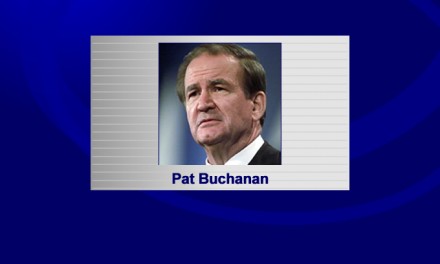Republicans need to ask themselves a couple of questions before they battle over Barack Obama’s eventual nominee to replace Justice Antonin Scalia on the Supreme Court. Is there any good reason to allow this president to change the ideological composition the Supreme Court radically? What is the political downside of denying him?
For one thing, despite the some wishful thinking in the media, Republicans don’t need to freak out about the potential political blowback over “obstructionism.” We’ve been hearing that the GOP would pay a steep price for its failure to rubber-stamp progressive reforms since the beginning of Obama’s first term. Obamacare. Gun registration. Cap and trade. There would be hell to pay, they said, even as Democrats were losing the House, the Senate, more than 900 state legislator seats and plenty of governorships.
Since the presidential race is shaping up to be a disaster for Republicans (in part because of their perceived lack of fortitude), it’s worth remembering that the executive office isn’t everything — at least, until a progressive Supreme Court allows it to be everything. And because elections have consequences, Republicans have amassed enough votes to reject a nominee and free up some blue state candidates to take more conciliatory positions on SCOTUS, if needed.
Another theory postulates that by pre-emptively stonewalling all of Obama’s nominees, Senate Majority Leader Mitch McConnell will be left without any ammunition to stop Hillary Clinton’s pick. She will have a free hand. If, however, the Senate engages in a tactical surrender now (and I’m sure grassroots voters will love this idea), it will have a stronger case to stop a Clinton pick. Or the Senate could accept the moderate Obama selection. There are few things wrong with this proposition.
First, Clinton might lose.
Second, as it stands, the SCOTUS debate is really about a dozen political issues. Abortion. Citizens United. Guns. After years of gridlock and the administration’s assertive use of executive power, all of our most contentious policy issues are tied up in the courts. Debating the EPA’s unprecedented power grab or talking about gun rights being weakened by the court, tactically speaking, is a lot more productive than spending weeks trying to explain to America why Obama’s telegenic, articulate, quasi-moderate nominee is unacceptable. Republicans would do better to make this a referendum on Obama.
Third, what’s the difference? Obama’s prospective “moderate” nominee would be indistinguishable from the prospective Clinton nominee on important cases. There is no chance of a defection from liberalism for either choice. There will be no conservative Souter, not even a Roberts. If Clinton or Sanders wins (and with every Trump success that prospects grows), the court is likely lost to conservatives, anyway. Why speed up the process?
In a press conference this week, Obama invented a whole bunch of imaginary constitutional duties for the Senate and struggled to rationalize his own hypocrisy on the subject. If Obama’s performance is any indication, conservatives have a strong case to make on precedent. I mean, does anyone really buy the Democrats’ newfound devotion to original intent?
Obama promised he would put forward someone “indisputably” qualified, intimating that there should be no more discussion. So he was asked, “Does that mean you’ll nominate a moderate?” His answer: “No.” Obama opposed Alito solely on ideological grounds — as Democrats did Bork and others — so there’s no reason Republicans should not embrace the Schumer Doctrine and shut down all nominations.
Won’t GOP stalling ignite huge voter turnout and engagement on the progressive left? To this point, the GOP seems more energized, in general. But progressives do rely heavily on the courts to institute change. Wouldn’t conservatives be equally concerned about the unelected court undoing years of progress? I imagine they would. Democrats would be facing the status quo; Republicans, a potentially devastating political event.
A 2015 CNN poll found that 37 percent of Americans thought the Supreme Court was already too liberal — that highest percentage measured since the network began polling the question in 1993. Only 20 percent felt like the court was too conservative, and 40 percent found it just right. So in other words, 77 percent would be happy with the status quo — a 4-4 court with a convincible moderate making decisions.
But even if nothing above were true, Republicans would still have no choice. The most consequential political upside for a GOP to fight on SCOTUS is this: The party won’t survive if it doesn’t fight. Not in its present form. There’s simply no way those you can accuse the president of abusing and ignoring the Constitution for seven years and then hand him the Supreme Court for the next 20. Not in the midst of a national election featuring an insurgent front-runner whose case is predicated on the notion that the party is led by weaklings. If you do, you might as well pack it in.
David Harsanyi is a senior editor at The Federalist and the author of “The People Have Spoken (and They Are Wrong): The Case Against Democracy.” Follow him on Twitter @davidharsanyi. To find out more about David Harsanyi and read features by other Creators Syndicate writers and cartoonists, visit the Creators Syndicate Web page at www.creators.com.
COPYRIGHT 2016 CREATORS.COM



















Recent Comments